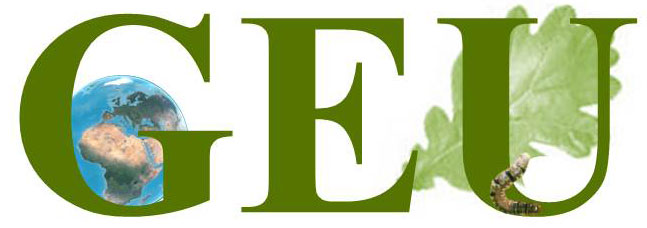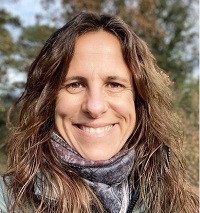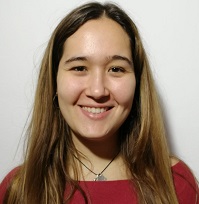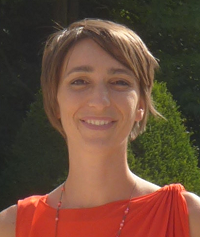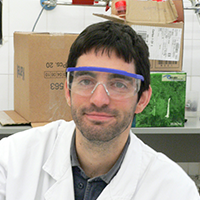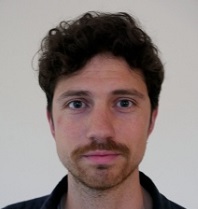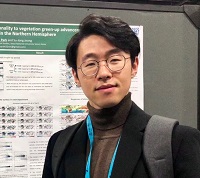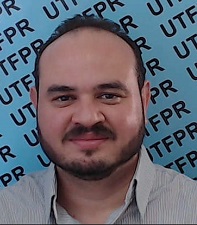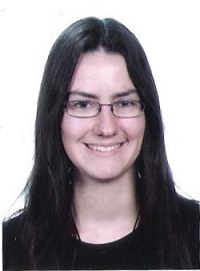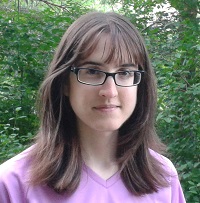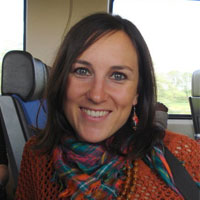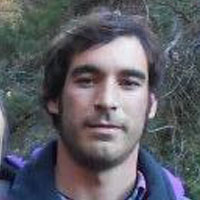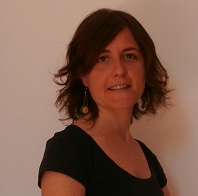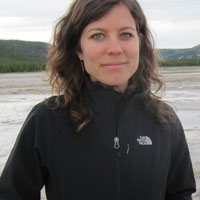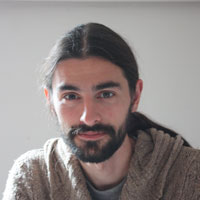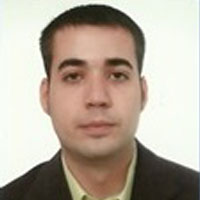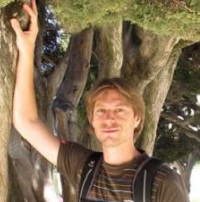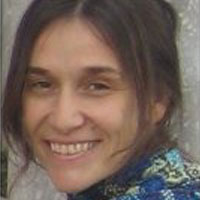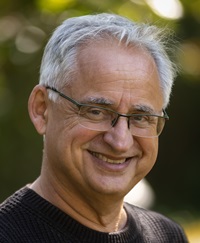
Prof. Dr. Josep Peñuelas (CREAF-CSIC)
CSIC Research Professor
Global ecology, global change, climate change, pollution, atmosphere-biosphere, Biogenic Volatile Organic Compounds emissions, remote sensing, plant ecophysiology, functioning and structure of terrestrial plants and ecosystems, chemical ecology, ecometabolomics, microbial ecology, macroecology and evolutionary ecology, biogeochemistry with special focus on phosphorus, environmental sustainability, food security and global health.

Dr. Iolanda Filella (CREAF-CSIC)
CSIC Senior Research Scientist
Development of remote sensing techniques to assess plant and ecosystem functioning, global and climate change effects on the structure and functioning of Mediterranean ecosystems, mechanisms and functions of plant-emitted volatile organic compounds.


Dr. Jordi Sardans (CREAF-CSIC)
CREAF Research Scientist I3
My main work is in the context of the relationships between terrestrial ecosystems structure and function with biogeochemical cycles (P, C, N, K,..), and coupling ecological stoichiometry and ecometabolomics approaches with ecosystems composition and function. I apply these studies to experimental and observational field data and to metadata analyses

Dr. Romà Ogaya (CREAF-CSIC)
CREAF Research Scientist I4
Global change effects in plant ecophysiology. Climate change and nitrification effects in plant photosynthetic activity, chlorophyll fluorescence, water relations, and ecosystem productivity.

Dr. Jofre Carnicer (University of Barcelona – UB and CREAF-CSIC)
Associate Researcher
Plant-herbivore interactions, arthropod biodiversity responses, wood growth and dendroecology.
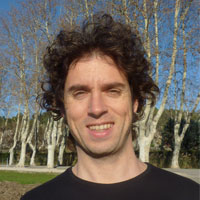

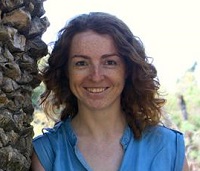
Dr. Sandra Nogué
ERC researcher
Palaeoecology, Biogeography, Island Biology
My research interest examines the mechanisms by which vegetation interacts with the environment using a palaeoecological approach.
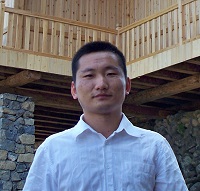
Prof. Weiqi Wang
Associate Researcher in Global Ecology Unit (CREAF-CSIC)
Global change and ecological stoichiometry, wetland biogeochemistry, industrial and agricultural wastes reuse in agriculture, greenhouse gases mitigation, Globally Important Agricultural Heritage Systems

Dr. Akash Tariq
Associate Researcher in Global Ecology Unit (CREAF-CSIC)
Plant Ecophysiology, Plant-Soil Interaction, Plant Nutrition, Plant Biochemistry, Climate Change, Biogeochemistry, Plant and Soil Ecology, Ethnopharmacology

Dr. Xavier Domene
Soil science professor
Soil science, soil biology, ecotoxicology, soil quality indicators, soil ecosystem services and biochar.

Dr. Dolores Asensio
Associate researcher
Soil enzyme activity, microbial biomass, microbial stoichiometry, soil VOCs.
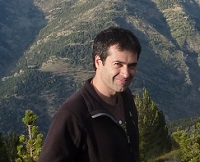
Dr. Oriol Grau
Associate researcher
I am currently working as a postdoctoral researcher at the Global Ecology Unit (CREAF-CSIC-UAB, Catalonia). My research combines several disciplines in Ecology: plant biology, fungal biology, community structure, functional ecology, ecosystem dynamics, plant-soil interactions and diversity patterns. I have been doing research on contrasting ecosystems across the world: in alpine (Pyrenees, Himalaya), subarctic (Scandes), arctic (Greenland), tropical (French Guiana), and in mediterranean regions (Catalonia). I have conducted observational and experimental studies in most of these regions to analyse the effects of environmental variability on ecosystem functioning.
For more information you can e-mail me (grau.oriol@gmail.com) or check the website: ResearchGate profile

Dr. Guille Peguero
Associate researcher
Effects of nutrient imbalances at local and regional scales on the composition and phylogenetic structure of soil mesofaunal communities.
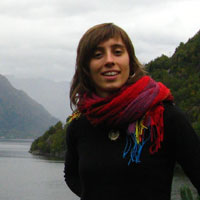
Dr. Olga Margalef
Associate researcher
Biogeochemical aspects of phosphorus cycle.

Dr. Catherine Preece (CREAF-CSIC)
Postdoctoral Marie Curie fellow
I am a plant ecologist and my current work is investigating the effect of drought on plant-soil interactions in the Mediterranean-climate region. I am particularly interested in learning more about how plant root exudates mediate soil microbial diversity and function under water stress, and the feedbacks the microbial community have on plants. An increase in extreme drought events could negatively impact biodiversity and soil quality in both natural and agricultural habitats. Attempts to mitigate drought effects will benefit from a thorough understanding of water stress on plants and soils and also the complex interactions between the two.


Prof. Ismael Hernández Valencia
Visiting scientist
Impact of anthropic activities on biogeochemical cycles. Soil science.
Research project: Cambios en el carbono del suelopor la aforestación de sabanas con pinares.

Dr. Gerard Farré (CREAF-CSIC)
Postdoctoral researcher
My research has focused on the measure of VOC emissions from plants, especially focusing on floral scent. I am especially interested in understanding the factors that exert evolutionary pressures determining floral emissions at the species and population level, and also the environmental factors that affect these emissions at the organism and tissue level through their effects on plant physiology and VOC physicochemistry. I am also interested in exploring the effects of such changes in floral scents on the ecological interactions that these emissions mediate with diverse floral visitors (pollinators, larcenists, florivores).
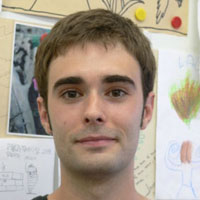
Dr. Marcos Fernández-Martínez (CREAF-CSIC)
ERC researcher
The effect of nutrient availability on forest features, productivity and carbon balance from a macroecological perspective.


Dr. Marc Peaucelle
Associate researcher
I am an environmental scientist currently working on the representation of plants in global terrestrial biosphere models.
I'm particularly interested in the interactions between the vegetation and their environment, but also their ability to face environmental changes.
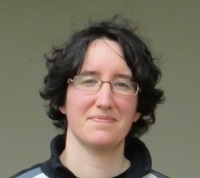
Dr. Mónica Ladrón de Guevara (CREAF-CSIC)
Post-doctoral Marie Curie fellow
I study, by using rainfall manipulation experiments, the adaptation capacity of dryland grass species to changes in soil water availability. The transgenerational effects of the treatments will be evaluated through phenotypic and genomic approaches.
Research project: Differential adaptation capacity of dryland grasses to directional changes in water availability (DIAGRASS)
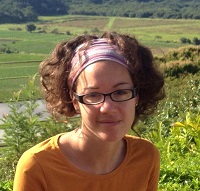
Dr. Sara Marañón Jiménez
Postdoctoral Marie Curie fellow
Temperature-driven effects on the ecosystem C:N stoichiometry, soil N losses and N transformation rates assessed with isotope dilution and 15N tracing techniques, as well as on the changes of N transfer to plants through the symbiotic association with mycorrhiza.
Research project: Resilience of Soil Stoichiometry in subartic soils under Temperature- Induced Soil Carbon Losses: Where does the N go? (StoiCa)
@SMaranonJimenez
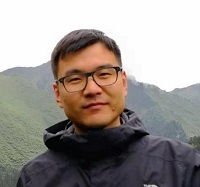
Dr. Gaofei Yin
Postdoctoral Marie Curie fellow
Remote sensing (canopy reflectance modeling, biophysical parameter retrieval), vegetation responses and feedbacks to climate change.
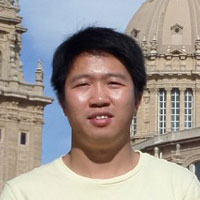
Dr. Daijun Liu (CREAF-CSIC)
Associate researcher
I focus on global change effects on forest ecosystem structure and function, especially on ecophysiological and demographical changes. I will study climate change and nutrient availability on forest growth, tree mortality and species recruitment, richness and vegetation productivity.

Dr. Chao Zhang
Associate Researcher
I focus on the response of ecosystem function and structure to climate change based on remote sensing technique. The objective is to assess the influence of climate change on carbon fixation at different temporal and spatial scales using photochemical reflectance index and fluorescence.

Dr. Estela Romero
Postdoctoral researcher
I am an ecologist broadly interested in the effects of multiple stressors –natural or human related− on the functioning of ecosystems. I earned my degree in Environmental Sciences, and then moved to the Marine Ecology for my PhD. Much of my research interests lie at the intersection of environmental processes and human activities, and I am particularly enthusiastic about those projects that try to bridge science and resource management. I have worked in research institutions of Spain, the UK, and France, and in projects concerning terrestrial, marine and freshwater issues. My work so far has been focused on two major axes: (1) The functioning of coastal marine ecosystems, and specifically the response of plankton to changes in nutrients and turbulence; (2) The land-ocean interface, in particular the links existing between water resources, the agro−food system, and the flows of N and P to the environment. I am currently focused on characterising the N and P biogeochemical cycles in Mediterranean river basins.
Research project: Imbalance-P
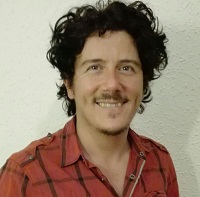
Dr. Paolo Zuccarini
Postdoctoral researcher
Agronomist/environmentalist specialized in plant ecophysiological responses to abiotic stresses in the frame of Climate Change, and in nutrient cycling in agricultural and forest ecosystems
Research projects:
“What makes leaves fall in autumn? A new process description for the timing of leaf senescence in temperate and boreal trees”. (Ref.: ERC Starting Grant 714916)
“Imbalance-P: Effects of phosphorus limitations on Life, Earth system and Society”. (Ref.: Synergy Grant 610028)

Dr. Ana María Yáñez
Postdoctoral researcher
I am a post doctoral researcher with a Juan de la Cierva funding. I did my undergraduate in Environmental Science at the University of Nottingham. Then I did my master in Biogeochemical cycles and Atmospheric Sciences in Lund University, Sweden. After I did my PhD in climate and the environment at the Brazilian National Institute of Amazonian Research (INPA) in co-supervision with the Max Planck Institute of Chemistry. Afterwards I continued as a post doctorate researcher for MPIC in the Amazon. My research was based on the interactions of volatile organic compounds (VOCs) within and above a central Amazonian tropical rainforest. My latest position as a Post doctoranl researcher was at Freiburg University (Germany), working in a ERC grant trying to find out how much carbon is emitted by plants through secondary plant metabolism from tropical plants.
I am interested in the interaction between forest ecosystems and the atmospheric chemistry. Forest can react very quickly to changes in environmental factors, and up to date, not all processes have been described or elucidated. As global temperatures increase and climate change exacerbates it is important to understand how forested areas will react to such changes, as the impact in atmosphere can be very large, from direct global warming via aerosol and carbon dioxide production, increase the atmospheric lifetime of pollutants, or even alter rain distribution locally. We need to provide better information for modellers, so they can constrain the processes governing the forest atmosphere interactions so better guidelines on mitigation and adaptation strategies can be suggested to policy-makers.
Research projects: VOCO and ATTO

Dr. Fei Lun
Postdoctoral researcher
Global and Regional P Cycle and Budget, Land Use and Climate Change, Ecological Economics and Sustainable Development.
Research project: Effects of phosphorus limitations on Life, Earth system and Society

Dr. Mariana Teles
Associate researcher
Effects of emerging contaminants, including nanoparticles, in aquatic organisms. Stress-immune responses in aquatic organisms. Endocrine disruption in fish. Non-invasive biomarkers in fish.

Dr. Mukund Palat Rao
Postdoctoral Marie Curie Fellow
I am an Ecoclimatologist who researches the interactions between climate change and natural and human ecosystems. My expertise includes dendrochronology, plant ecophysiology, remote sensing, and climate science.
Research projects:
- Temporal dynamics of tree-growth and photosynthesis and their environmental drivers in the Lamont Sanctuary Forest Preserve
- Climate, human and ecosystem interactions in the face of a rapidly changing North Asian biome
- The fate of terrestrial forest carbon from photosynthesis to biomass under drought and climate change (TERRACARB)
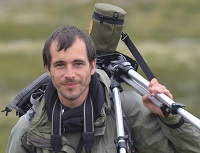

Dr. Albert Bach (CREAF)
Postdoctoral researcher
I am currently developing my PhD thesis titled " Forest and Human Health: a new approach for forest management?" in which we aim at unveiling the potential relations or not between forests and human health involving Biogenic Volatile Organic Compounds.

Dr. Adrià Descals (CREAF-CSIC)
Postdoctoral researcher
My research interest focuses on the response of terrestrial ecosystems to climate change, using remotely sensed data and machine learning techniques. In my research, I used satellite and geospatial data in cloud-based platforms (such as Google Earth Engine), for large-scale analysis of land surface phenology estimation and land cover classification. I am now working in a postdoctoral position for the ALFAwetlands project, and I will be producing a detailed land cover map of the European wetlands and will characterize these ecosystems using remotely sensed data.
Research project: ALFAwetlands

Dr. Xaali O’Reilly Berkeley
Postdoctoral researcher

Dr. Roger Grau-Andrés
Postdoctoral researcher
My research has focused on the response of plant communities and soil biota to global change factors (e.g., altered precipitation regimes, fire regimes, land use, loss of plant functional groups), and the subsequent effects on ecosystem functioning. At CREAF, I study the relationship between the elemental composition of organisms and their functional traits, and how elemental composition and its diversity may drive productivity and stability in ecosystems.

Dr. Milagros Rodriguez-Caton
Affiliated Researcher (Department of Plant Sciences, UC Davis, USA)
Climate and forest ecosystems interactions at different spacio-temporal scales: from the leaf to the ecosystem, and from diel to multi-decadal time scales. I use tree rings and remote sensing tools to reconstruct the climate of the past, and to assess the impacts of climate change on ecophysiology, forest productivity and forest mortality. I work in a variety of forests from wet tropical to arid mountainous. My current study site is located in La Selva Biological Station in Costa Rica.

Dr. Écio Diniz Souza
Postdoctoral researcher
My main current interests and research lines are related to functional and phylogenetic ecology, plant-plant interactions, landscape ecology, climatic niche forecasting, supervised machine learning, and applied statistics. I am also a consultant in data analysis and leader of the initiative Beta Analítica, which aims to disseminate knowledge on varied topics in data science. Further, I am a member of the ProBioDiversa (a non-profit organization engaged in biodiversity conservation and sustainable development in Latin America) and of the SER Europe (Society for Ecological Restoration). At CREAF, I am a postdoctoral researcher from the Elemental Diversity and Macroecology research team (EDM) supported by the ERC-STOIKOS project.
Research project: STOIKOS: Elemental ecology: towards an element-based functional ecology
@DinizEcio

Prof. Jianfen Guo
Visiting scientist
I am particularly interested in the study of climate change and soil processes in forest ecosystems. Current research focus on climate change (i.e., warming, drought) impacts on soil C or N cycling and the potential mechanism in subtropical forests.
Project names:
1. Effects of plant root inputs on soil organic nitrogen depolymerization in the Cunninghamia lanceolata plantation under warming and microbial regulation mechanism, supported by the National Natural Science Foundation of China (grant number 32271717).
2. Characteristics and regulation mechanism of soil CH4 flux in Chinese fir plantation under the interaction of precipitation change and nitrogen deposition, supported by the Foreign cooperation Project of Science and Technology Department of Fujian Province (grant number 2022I0012).

Dr. Estefanía Muñoz
Postdoctoral researcher
Climate-vegetation-soil interactions and carbon sequestration by terrestrial ecosystems.
Research project: The Drought Impact on the Climate Benefit of Carbon Sequestration (DISEQ). MSCA project.

Dr. Huijun Ye
Postdoctoral researcher
I focus on mechanisms underlying the response of soil nitrogen transformations and fates to phosphorus addition in forests.
Research project: Mechanisms underlying the response of soil nitrogen fates to phosphorus addition in low-subtropical plantations.

Dr. Liehua Tie
Postdoctoral researcher
Interested in the responses of litter decomposition, soil stoichiometry, and forest ecosystem biogeochemistry to global change (nitrogen deposition, sulfur deposition, and phosphorus limitation), especially in subtropical forests.
Research projects:
National Science and technology support program; ‘12th Five-year plan’ of Sichuan Province and the Sci-tech Project of the ‘12th Five-year plan’ of China

Dr. Kaijun Yang
Postdoctoral researcher
My main research topic is the ecology of VOCs emissions in the soil, biological and environmental effects. I will concentrate on the effect of biotic and abiotic factors on VOCs emissions in the soil and the interactions of biology and environment delivered by BVOCs, emphasizing the ecological significance.
Research project: Ecology of VOCs in soils: biological and environmental effects

Dr. Xin Song
Postdoctoral researcher
Soil organic carbon sequestration and management, soil phosphorus limitation under nitrogen deposition
I'm working on the dynamics of community succession, soil organic carbon, and phosphorus after revegetation in abandoned farmland of Loess Plateau, China

Dr. Jiuying Pei
Postdoctoral researcher
Research work: Nitrogen deposition, Warming, land use type, Grazing.
The project working on Responds of soil and plant respiration to warming and Nitrogen addition on semi-arid grasslandon the Loess Plateau of China.

Dr. Jianbo Fang
Postdoctoral researcher
My main research contents include: 1) quantitative research on BVOC emissions (mainly terpenoids) from plants under multiple factors (nitrogen deposition and precipitation regime change) in subtropical evergreen broad-leaved forests in South China; 2) the effects of N deposition and precipitation regime change on the structure and functional characteristics of leaf epiphytic and endophytic microbial community.
Research projects: 1) The National Science Fund for Distinguished Young Scholars "Microbial regulation mechanism of soil ecological process in evergreen broad-leaved forest in response to environmental changes"; 2) National Natural Science Foundation of China (NSFC) "The role and regulation mechanism of mycorrhizal fungi in soil nitrogen transformation under N deposition and precipitation regime change in subtropical forests".

Dr. Zhenhong Hu
Postdoctoral researcher
Dr. Zhenhong Hu is a Beatriu de Pinós researcher at the EDM team. His research is focused on plant debris (e.g., deadwood, leaf litter and fine root) decomposition in forest ecosystems, and how the dynamics of these processes will be influenced by global change (e.g., warming, drought and nitrogen and phosphorus deposition), tree species and soil microbial communities. Recently, he explored the diverse wood traits regulating microbial metabolism and nutrient availability in deadwood with the consequences of these trait effects on wood decomposition, carbon fluxes and soil carbon inputs. In the future, he will explore how tree biodiversity controls the elemental composition of organisms (e.g., plant and decomposer), and how elemental diversity drives decomposition rate.
Research interest: wood decomposition, soil microbial ecology, soil carbon and nutrient cycles, forest management


Dr. Miquel Ferrín Guardiola
Postdoctoral researcher
My research focuses on the structuring effect of dispersal and selective processes across community assemblages of bacteria, fungi, trees and arthropods at local scales
Project name: Decay of similarity across diverse tropical rainforest communities: integrating spatial and nutrient distances with scales of analysis.
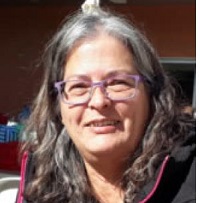
Dr. Susana Silvestre
Postdoctoral researcher
I study the effect that a long-term experimental drought on a Mediterranean forest and scrub. I analyse adaptations at the ecophysiological, phenological and demographic level of model species in a scenario of extreme drought.
Project: Analysis of the regional-scale ecosystem network.

Dr. Karen Torres
Postdoctoral researcher
Use of the geographic information system (GIS) and remote sensing in the assessment of crops evolution, in face of climatic events.
Project name: Núcleo de estudio de Agricultura, Clima y Tecnología, teniendo como área de interés el Paraguay.

Argus Pesqueda
PhD Student
My research will focus on the metabolome profile of warming soils to examine the role of evolutionary processes, shifts in plant community functioning, soil functioning and carbon and nutrient metabolism, and distinguishing short-term plasticity and long-term adaptation.
Research Project: ESR8 FutureArtic - A glimpse into the Arctic future: equipping a unique natural experiment for next-generation ecosystem research

Tomàs Serrano
PhD student
Environmental Analytical Chemistry. Ecotoxicology. Investigation of emerging pollutants. Antibiotics as contaminants. Analysis of new pollutants. Determination of emerging contaminants in plants. Improvement of analytical methods. Determination of contaminants in soils.
Research project: Determination of emerging contaminants in plants and soils: antibiotics and pseudo hormonal compounds

Fernando Coello Sanz
PhD Student
My current research focuses on the role of different nutrient availability in plant community assembly processes.
Project name: The Role of Nutrient Availability in the Functional and Phylogenetic Diversity of Tree Communities in Tropical Rainforests.

Javier de la Casa Sánchez
PhD Student
The inexorable change in the stoichiometry of carbon and nitrogen relative to phosphorus and potassium, but also among other bioelements as calcium, magnesium of sulphur has no equivalent in Erath story; and yet it remains as a virtually unexplored research field with huge implications to ecosystem functioning, agriculture, food security and human health. I am joining the ELEMENTALSHIFT project to analyse the past trends in the changes of the bioelemental composition of organisms and soil. Moreover, our objective is to assess the current scenario of elementome shifting and the possible implications it may have for the present and future food security
Research project: ELEMENTALSHIFT

Vicky Almendra Correa Seminario
PhD Student
Plant ecology, Botany of higher plants, Taxonomy, Ethnobotany, Biogeography.
Research projects:
· 1). Worldwide Pollinator Operation Syngenta, Peru Chapter - Agrovision Company and RAPEL Company
· 2). In the Seedbed of research in Phanerogamic Botany, Ethnobotany, and Economic Botany at the National University of Piura, to train students to conduct research

Oscar Lanuza
PhD Student
I am currently a predoctoral student at the Ph.D. in Terrestrial Ecology at the UAB and CREAF. My research aims to improve the understanding of the functioning and dynamics of tropical forests through the application of the functional approach, and focuses on the study of; 1) the intraspecific variability of the functional traits of plants and their relationship with the ecosystem service of carbon sequestration; 2) the morphological and functional responses of seedlings to disturbances (drought, fire, and herbivory) and their potential use as predictors of changes in the growth of species during seedling establishment. Recently, I have studied the restoration processes, the production, and decomposition of litter, and the dynamics of nutrients in tropical forests.
Skills and expertise: Biodiversity, Forest Ecology, Applied Ecology, Litter Decomposition
Project name: CarbonTROFONIC: Assessment of the actual and potential Carbon stock of tropical forest fragments in the protected landscape of Miraflor-Moropotente in northwest Nicaragua.

Eladio Rodriguez Penedo
PhD Student
Biodiversity and Ecosystem functioning, Species interactions, Macroecology, Remote sensing, Invasion Biology, Plant Ecology
Research Project: STOIKOS: Elemental Ecology: towards an element-based functional ecology.

Xiaojun Zou
PhD Student
Root-Exudate-Mediated Phosphorus Acquisition by Aluminium-Accumulating Plants), he will do some work about long-term experiment under global change.

Shuxian Jia
PhD Student
Litter decomposition, Global climate change, Carbon cycling.


Cinta Sabaté Gil
PhD student
Project name: Disentangling the effect of Temperature, Photoperiod and light intensity on leaf unfolding of deciduous species.

Zhaoqi Zeng
PhD Student
Work interest: Carbon and water cycle coupling through vegetation, biosphere-atmosphere feedbacks, climate extremes, remote sensing, surface hydrology, vegetation biogeochemistry, modeling, machine learning, and statistical methods of data analysis
Detail description: I am a doctoral researcher at Institute of Geographic Sciences and Natural Resources Research, Chinese Academy of Sciences, and a visiting student at the Autonomous University of Barcelona working with Prof. Peñuelas. My research is related to the coupling between global carbon and water cycle through photosynthesis. I work with data from models, remote sensing, and flux towers using machine learning and statistical methods of modeling to gain new insight on the impacts of water stress on vegetation under climate change.

Xiong Liu
PhD Student
My research interest is in plant functional traits, including leaf economic spectrum, trade-offs of plant functional traits, intraspecific and interspecific trait variation, and plant-environment interactions. Besides, I have also researched the impact of global changes (increased nitrogen deposition, changes in precipitation patterns) on soil biochemical processes.

Junlan Xiao
PhD Student
Passionate about climate change and the potential impacts on Earth's ecosystems based on multi-source data and remote sensing, particular focus on extreme events, drought, and terrestrial carbon cycle. The interaction of water and elevated CO2 (eCO2) effect on terrestrial carbon cycle remains unclear. The indirect effect of eCO2 on plant water use was hypothesized that impacts of water limitations on vegetation growth is potentially mitigated by eCO2 effect, however, this hypothesis is under controversial due to the relationship with other nutrients like N and P. I hope to focus on the interactions of water, nutrients, and eCO2 effect on biomass.

Fatemeh Pordel
PhD Student
Land surface phenology and Climate change
Research project: Effect of climate change on land surface phenology in semi-arid rangelands ecosystems in Southwest Iran.

ZeJun Li
PhD Student
The experiment of ecosystem carbon cycle was carried out under two interference backgrounds. Three processes of carbon cycle are studied: carbon fixation, carbon decomposition and carbon storage. To explore the mechanism and influencing factors of plant biomass productivity and ecosystem decomposition function (woody decomposition) on three carbon cycle processes in fragmented plots in TIL(Ten Thousand Lands) and pine wood nematode infection plots in Suichang.
Research project: Effects of forest ecosystem functions on environmental change in fragmented landscapes and Changes of ecosystem service function in Masson pine forest after invasion of pine wood nematode.
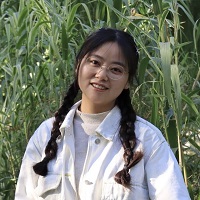
Yue Xi
PhD Student
My research area is mainly about atmospheric deposition and its ecological effects. The overall objective during my doctoral studies is to systematically quantify the spatio-temporal pattern and influencing factors of atmospheric acid deposition in China, and further evaluate the critical load of acid deposition to reveal its risk to soil acidification. This objective will be achieved through multi-source data integration, and combining model approaches.
Research project: Atmospheric deposition, acid deposition, ecological effects, biogeochemical cycle.

Xiaokang Dai
PhD Student
Response of inter-root microorganisms to pathogen infestation and their mechanism of action in ecological regulation of root rot disease.

Yuan-yuan Li
PhD Student
Mining of underground coal, Vegetation disturbance and evolution, Ecological effect, Ecological Restoration.
Project names:
- Mechanism of Ecological Environment Damage Caused by Coal Mining ( National Natural Science Foundation of China major project, No.52394193)
- Impact of Ecological Restoration on Microclimate Change in Shendong Mining Area and Its Benefit Evaluation (Science and Technology Innovation Project of Shendong Coal Branch of China Shenhua Energy Co., Ltd, No.20201602)
- Study on Standard Evaluation and Integrated Technology Application of Ecological Governance in Shendong Mining Area (Science and Technology Innovation Project of Shendong Coal Branch of China Shenhua Energy Co., Ltd, No.202016000036)

Yuntao Wu
PhD Student
My research interests are focused on the effects of plant-soil interactions on soil carbon stability and storage. I am particularly interested in understanding how climate, vegetation and microbial activities drive the geographic patterns of Al-/Fe-(hydr)oxides–organic carbon associations. In addition, I am interested in exploring how mycorrhizal association mediates particulate organic matter (POM) and mineral associated organic matter (MAOM) formation and turnover.
Project name: Dynamics of soil organic matter fractions with different stability along an elevation gradient.

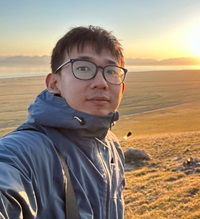
Ruochen Cao
PhD Student
Biodiversity and ecosystem functioning relationship; the response of photosynthesis to global environmental change; remote sensing.
Research project: Satellite-based monitoring of global plant photosynthesis.
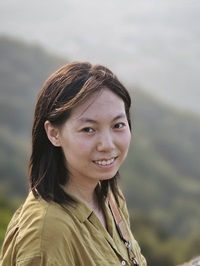
Yirong Sang
PhD Student
I have a background in engineering as a bachelor in Remote Sensing Science and Technology (Wuhan University, China, 2021). As a postgraduate student, I investigated the topographic differentiation in forest drought responses via remote sensing products (Wuhan University, China, 2021-2024).
I explore ecological phenomena and patterns with remotely sensed data and products at large scales, and I am especially interested in how vegetation leaf phenology reflects the interaction between climate changes and plant life dynamics. I aim to enhance the connection between ecological measurements and satellite observations, that is why I chose my PhD program in calibrating remote sensing land surface phenology to species level. In this process, very-high-resolution imagery from satellites, together with machine learning models, will be utilized.
Research projects:
Estimation of forest diversity and phenology at the tree level from high resolution remote sensing and machine learning
EXPERIMENTAL-GEU project "Effects of climate change on terrestrial ecosystems".

Zhijing Yu
PhD Student
Elementomes, elemental diversity and soil carbon, as well as the relationship between elementomes and soil carbon.
Research project: STOIKOS: Elemental Ecology: towards an element-based functional ecology
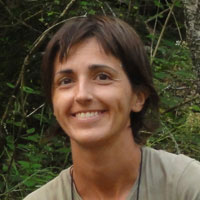
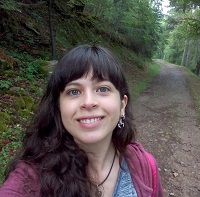
Laura Márquez Tur
Technician
Currently working as a technician, but also strongly interested in the study and conservation of biodiversity. My previous work experience mainly focuses on soil analysis and edaphic fauna, especially arthropods.

Marc Díaz
Field and lab assistant
Project: Desentrañar y aportar soluciones para mitigar y adaptarse a los cambios en los elementomas de los organismos, comunidades y ecosistemas (NUTRIARID)
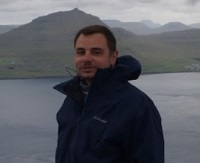
Joan Rodeja
Environmental economist
Environmental economy of global environmental change, specially focused on the socioeconomic changes associated to the changes in the biolementome, food security and rewildering of nature.

Marta Ayala
Technician of ecometabolomics

Dra. Anna Àvila Castells (CREAF)
CREAF Research Scientist
Ecology of atmospheric deposition


Dr. Francesc Sabater i Comas
Professor
Linking aquatic and terrestrial ecosystems, nutrient cycling in freswhater and riparian forest ecosystems.

Dr. Alejandro Castellanos Villegas
Profesor Investigador Universidad de Sonora
Ecofisiología Vegetal y Funcionamiento de Ecosistemas de Zonas Áridas.
Research projects:
- Cambios de la cubierta vegetal e impactos de la actividad ganadera. Estudio de las interacciones ecológicas y socio-económicas.
- Estequiometría ecológica y percepción remota para el análisis de la distribución espacial e invasibilidad de zacate Buffel (Cenchrus ciliaris), en zonas prioritarias del Noroeste de México.
Ex-MEMBERS OF THE GLOBAL ECOLOGY UNIT
| Name | Position | |
| Sara Marrafa | Master student | |
| Dominik Sperlich | Postdoc | dominik@creaf.uab.cat |
| Giorgio Alessio | Postdoc | |
| Jorge Curiel | Postdoc | |
| Patricia Prieto | Postdoc | |
| Kacem Harrabe | Postdoc | |
| This Ruthishauser | Postdoc | this@creaf.uab.cat |
| Alfredo di Filippo | Postdoc | diFilippo@unitus.it |
| Mónica Mejía | Postdoc | m.mejia@creaf.uab.cat |
| Lina Marcela Castaño | Postdoc | lm.castano@creaf.uab.cat |
| Sudhir Pandey | Postdoc | skpbhu@gmail.com |
| Roger Seco | Postdoc | roger@creaf.uab.cat |
| Rebeca Izquierdo Miguel | Postdoc | rebeca@creaf.uab.es |
| María Díaz de Quijano | Postdoc | m.diaz@creaf.uab.es |
| Catherine Morfopoulos | Postdoc | c.morfopoulos@imperial.ac.uk |
| Alba Lázaro | Estudiant de Doctorat | albalazaro@ugr.es |
| Josep Salvador Blanch | Estudiant de Doctorat | |
| Benjamin Carrillo | Estudiant de Doctorat | |
| Martin Garbulsky | Estudiant de Doctorat | |
| Laura Nagy | Estudiant de Doctorat | laura.nagy@uni-bayreuth.de |
| Manel Niell | Estudiant de Doctorat | mniell.cenma@iea.ad |
| Marta Coll | Estudiant de Doctorat | m.coll@creaf.uab.cat |
| Shawn Kefauver | Estudiant de Doctorat | sc.kefauver@creaf.uab.cat |
| Marta Domènech | Estudiant de Doctorat | mdomenech.cenma@iea.ad |
| Shasha Tao | Estudiant de Doctorat | s.tao@creaf.uab.es |
| Pille Mand | Estudiant de Doctorat | pille.mand@ut.ee |
| Elena Mezzini | Estudiant de Doctorat | elena.mezzini@gmail.com |
| Jenny Hunt | Estudiants de màster | |
| Karen Thirslund | Estudiants de màster | |
| Jorge Silva | Tècnic | |
| Roxana Aragon | Postdoc | roxaragon@gmail.com |
| … |
